第26章 BOOK VI(6)
Among those foolish pursuers of pleasure they reckon all that delight in hunting, in fowling, or gaming: of whose madness they have only heard, for they have no such things among them. But they have asked us, what sort of pleasure is it that men can find in throwing the dice? For if there were any pleasure in it, they think the doing of it so often should give one a surfeit of it: and what pleasure can one find in hearing the barking and howling of dogs, which seem rather odious than pleasant sounds? Nor can they comprehend the pleasure of seeing dogs run after a hare, more than of seeing one dog run after another; for if the seeing them run is that which gives the pleasure, you have the same entertainment to the eye on both these occasions, since that is the same in both cases: but if the pleasure lies in seeing the hare killed and torn by the dogs, this ought rather to stir pity, that a weak, harmless and fearful hare should be devoured by strong, fierce, and cruel dogs. Therefore all this business of hunting is, among the Utopians, turned over to their butchers; and those, as has been already said, are all slaves; and they look on hunting as one of the basest parts of a butcher's work: for they account it both more profitable and more decent to kill those beasts that are more necessary and useful to mankind; whereas the killing and tearing of so small and miserable an animal can only attract the huntsman with a false show of pleasure, from which he can reap but small advantage. They look on the desire of the bloodshed, even of beasts, as a mark of a mind that is already corrupted with cruelty, or that at least by the frequent returns of so brutal a pleasure must degenerate into it.
Thus, though the rabble of mankind look upon these, and on innumerable other things of the same nature, as pleasures, the Utopians, on the contrary, observing that there is nothing in them truly pleasant, conclude that they are not to be reckoned among pleasures: for though these things may create some tickling in the senses (which seems to be a true notion of pleasure), yet they imagine that this does not arise from the thing itself, but from a depraved custom, which may so vitiate a man's taste, that bitter things may pass for sweet; as women with child think pitch or tallow tastes sweeter than honey; but as a man's sense when corrupted, either by a disease or some ill habit, does not change the nature of other things, so neither can it change the nature of pleasure.
They reckon up several sorts of pleasures, which they call true ones: some belong to the body and others to the mind. The pleasures of the mind lie in knowledge, and in that delight which the contemplation of truth carries with it; to which they add the joyful reflections on a well-spent life, and the assured hopes of a future happiness. They divide the pleasures of the body into two sorts; the one is that which gives our senses some real delight, and is performed, either by recruiting nature, and supplying those parts which feed the internal heat of life by eating and drinking; or when nature is eased of any surcharge that oppresses it; when we are relieved from sudden pain, or that which arises from satisfying the appetite which nature has wisely given to lead us to the propagation of the species. There is another kind of pleasure that arises neither from our receiving what the body requires nor its being relieved when overcharged, and yet by a secret, unseen virtue affects the senses, raises the passions, and strikes the mind with generous impressions; this is the pleasure that arises from music. Another kind of bodily pleasure is that which results from an undisturbed and vigorous constitution of body, when life and active spirits seem to actuate every part.
This lively health, when entirely free from all mixture of pain, of itself gives an inward pleasure, independent of all external objects of delight; and though this pleasure does not so powerfully affect us, nor act so strongly on the senses as some of the others, yet it may be esteemed as the greatest of all pleasures, and almost all the Utopians reckon it the foundation and basis of all the other joys of life; since this alone makes the state of life easy and desirable; and when this is wanting, a man is really capable of no other pleasure. They look upon freedom from pain, if it does not rise from perfect health, to be a state of stupidity rather than of pleasure.